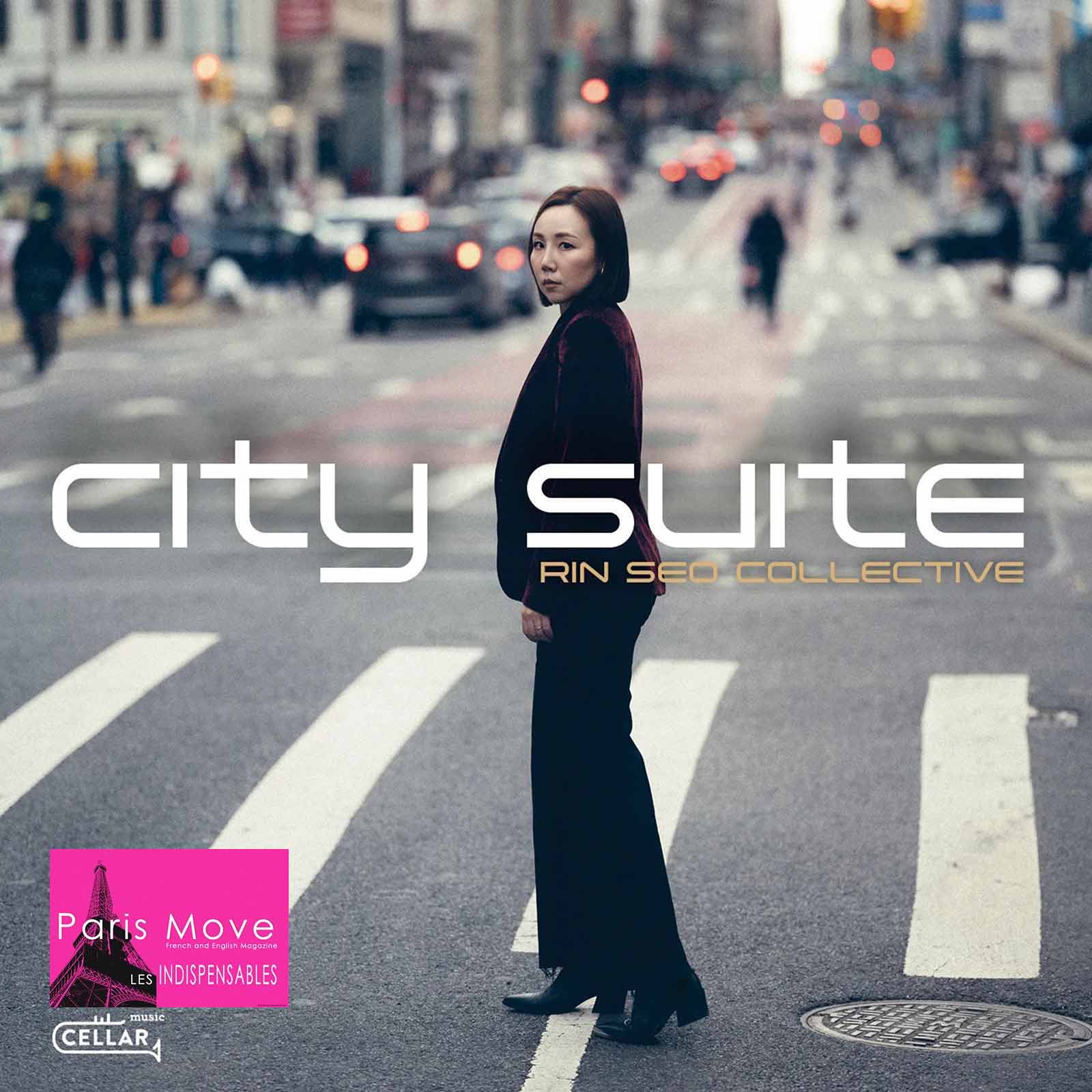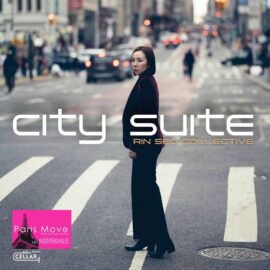| Jazz |

Rin Seo and the Sound of Modern Migration: How a Korean Conductor Found the Pulse of New York
By any measure, the growing presence of Asian artists in and around the world of jazz is one of the most fascinating cultural shifts of the past two decades. Once viewed as an essentially American idiom, a language born of African American struggle and innovation, jazz has long since become global, and its most exciting voices often speak from unexpected corners of the world. Yet even within this broad movement, Rin Seo stands apart.
The Korean-born composer, conductor, and pianist has lived in New York for more than a decade, and in that time she has done more than simply adapt to her surroundings. She has absorbed the city’s rhythm, translated its chaos into structure, and captured its emotional complexity in her music. Her new album, City Suite, is not merely a debut recording, it is an act of synthesis, an artistic statement in which culture, identity, and experience meet in luminous balance.
Seo’s trajectory is emblematic of the new face of contemporary jazz composition. Trained in the rigorous tradition of classical music, she has built upon that foundation to explore broader harmonic landscapes, rhythmic experimentation, and orchestral color. As both a composer and conductor, she occupies a rare position: one foot in the meticulous architecture of symphonic writing, the other in the improvisational elasticity of jazz. Listening to City Suite feels like observing that duality at work in real time, every track a reflection of her capacity to merge elegance with energy, reflection with risk.
The Sound of a City
New York has always been a mirror in which America sees itself, its past and its possibilities, its tensions and triumphs. For Rin Seo, however, the city is not a metaphor but a living organism. Its pulse, she says, shapes her writing. The bustle of Midtown, the silence of late-night subway rides, the convergence of languages and faces, all these fragments find their echo in her compositions.
City Suite opens with a sense of anticipation, as if the city itself were waking. The harmonies are rich, the orchestrations bold, but what truly distinguishes Seo’s writing is her control of texture. Each section of her orchestra feels like a voice in conversation, trading ideas, sometimes clashing, always finding resolution. There is a sense of motion throughout, not just musical but emotional.
As composer Jim McNeely, who mentored Seo early in her career, observes: “Her imagination and her sense of ensemble are extraordinary. The album feels large enough to command attention, yet light enough to breathe, a rare quality in orchestral jazz.”
That balance, McNeely suggests, is no accident. Seo’s conducting background informs every bar she writes. Her understanding of timbre, phrasing, and pacing gives her compositions an almost cinematic fluency. One can sense the conductor’s hand shaping the flow, tightening here, releasing there, guiding the listener through a meticulously constructed narrative.
Between Two Worlds
There is something profoundly modern, and profoundly human, in Seo’s work. Like so many immigrants before her, she has navigated the tension between memory and reinvention. America’s story is, after all, a story of migrations: first forced, through the horrors of slavery, and later voluntary, driven by politics, hope, or necessity. Cities like New York, layered with those histories, have become laboratories of identity.
Seo’s music draws on that cosmopolitan inheritance. She merges the structure of Western symphonic writing with the modal inflections of Korean folk music and the rhythmic elasticity of jazz. The result is neither East nor West, but something fluid, a conversation between the two. In Lullaby, one of the album’s most striking pieces, she manages to fold nostalgia into innovation. The melody hovers between simplicity and sophistication, as if two musical worlds were learning to speak to each other.
Her classical training is evident throughout, not as a constraint but as a source of freedom. It provides her with a broad technical vocabulary, harmonic layering, orchestral color, counterpoint ,that she wields with remarkable subtlety. Where others might flaunt complexity, Seo prefers precision. She knows when to let silence breathe, when to let a trumpet phrase carry emotion unaccompanied.
Building an Orchestra of Intent
One of Seo’s greatest achievements in City Suite lies in her choice of collaborators. Each musician seems handpicked not only for technical mastery but for their ability to inhabit her vision. “When I compose,” she explains, “I imagine specific sounds, specific players. The composition isn’t complete until their voices bring it to life.”
Among the ensemble, trumpeter Ingrid Jensen plays a particularly meaningful role. “My relationship with Ingrid goes back to my master’s studies at the Manhattan School of Music,” Seo recalls. “During a big-band rehearsal, she spontaneously took a solo on one of my pieces. Her interpretation was so unexpected and powerful that I immediately knew I wanted her on my first record. It took years, but that dream finally came true.”
Jensen’s playing threads through the album with equal parts fire and restraint, adding lyrical intensity without overpowering the ensemble. The chemistry between composer and soloist is evident, a dialogue born of mutual respect and artistic curiosity.
The Broader Meaning of City Suite
At a time when cultural boundaries are increasingly porous and artistic labels feel less relevant, City Suite offers a blueprint for what jazz, and, by extension, American music, might become. It is not about imitation but integration, not about erasing origins but expanding them. Seo’s compositions remind us that innovation often begins where identities intersect.
For European listeners, the album may resonate differently. There is a familiarity in its melodic clarity and structural rigor, yet something thrillingly foreign in its rhythmic unpredictability and tonal warmth. It invites you in, even as it challenges your expectations.
From a critical standpoint, City Suite succeeds precisely because it resists easy categorization. It is orchestral, yet intimate; global, yet deeply personal. It reflects a mind that is analytical but never cold, emotional but never sentimental. Above all, it speaks to a universal truth: that art, at its best, is the story of how we learn to belong.
A Voice Found, a Vision Realized
After a decade of silence, study, and self-discovery, Rin Seo has not only found her voice but refined it into something unmistakably her own. She stands as part of a new generation of artists redefining what it means to be a jazz composer in the 21st century, cosmopolitan, informed, and unafraid to mix influences that once seemed incompatible.
In City Suite, Seo gives us a portrait of a city, and of herself, painted in sound. It is a work that celebrates diversity not as an idea but as a lived reality, the hum and heartbeat of New York translated into music. For those willing to listen closely, it is also a reminder that in an age of noise, there is still room for nuance, patience, and beauty.
Rin Seo can indeed be proud of this album, and listeners, in turn, can be grateful for the arrival of a voice that feels at once entirely new and deeply familiar.
Thierry De Clemensat
Member at Jazz Journalists Association
USA correspondent for Paris-Move and ABS magazine
Editor in chief – Bayou Blue Radio, Bayou Blue News
PARIS-MOVE, November 10th 2025
Follow PARIS-MOVE on X
::::::::::::::::::::::::
Musicians:
Rin Seo composer, conductor
Steve Wilson piccolo, flute, soprano sax, alto sax
Ethan Helm soprano sax, alto sax (track 4)
Dan Pratt flute, clarinet, tenor sax
Andrew Gutauskas clarinet, bass clarinet, baritone sax
John Lake trumpet
Ingrid Jensen trumpet (track 5, 8)
Adam Unsworth horn
Nick Grinder trombone
Joyce Hammann violin (except track 3, 7)
Sita Chay violin (except track 3)
Orlando Wells viola (except track 3)
Jody Redhage Ferber cello (except track 3)
Sebastian Noelle guitar
Adam Birnbaum piano
Matt Clohesy contrabass
Jared Schonig drum set, percussion
Track Listing:
City Suite: I. The Big Apple
City Suite: II. Cityscape
City Suite: III. Alone, But Not Alone
Lullaby
Desert Flower (Featuring Ingrid Jensen)
Music For Dance No. 2
Blues À La Carte
Riding A Bike (Featuring Ingrid Jensen)
Produced by Alan Ferber and Rin Seo
Associate Producer: Jongyool Lee
Session Assistant: Joseph Herbst
Engineered and Mixed by Brian Montgomery
Assistant Engineer: Matthew Sullivan
Recorded at the Power Station NYC on September 18-19, 2024
Mastered by Dave Darlington
Executive Producer: Cory Weeds, Rin Seo, Jongyool Lee
Production Manager: Dominic Duchamp
Session Photographer: Anna Yatskevich
Album Cover Photographer: Haseok Chung
Design and layout by Tilda Hedwig

